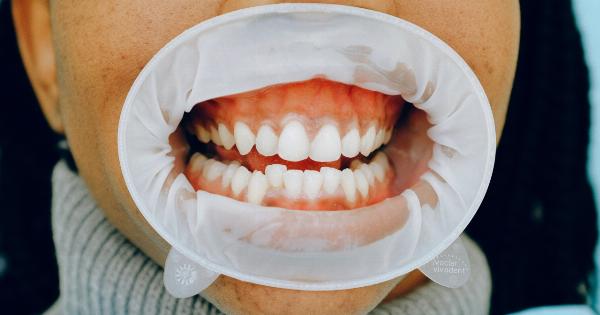Bleeding gums are often dismissed as a common occurrence, but they can actually be an indication of a more serious underlying health condition.
While occasional bleeding gums may not be cause for alarm, consistent or excessive bleeding could be a marker of an underlying disease. In this article, we will explore the various diseases and conditions that could be linked to bleeding gums and discuss the importance of seeking proper medical attention.
Understanding the Basics of Gum Bleeding
Gums are the soft tissues that hold our teeth in place. They are made up of delicate blood vessels that can become easily damaged. When the blood vessels are injured or inflamed, gums may start bleeding.
While brushing or flossing too vigorously can cause temporary bleeding, persistent bleeding gums may indicate an underlying problem.
Gingivitis: The Most Common Cause
Gingivitis, an inflammation of the gums, is the most common cause of bleeding gums. It is usually caused by poor oral hygiene that leads to the accumulation of plaque and tartar on the teeth and gumline.
This buildup irritates the gums, causing them to bleed. If left untreated, gingivitis can progress to periodontitis, a more severe form of gum disease that can lead to tooth loss.
Periodontal Disease and Bleeding Gums
Bleeding gums can also be a sign of periodontal disease, a chronic infection of the gums and supporting structures of the teeth.
Periodontal disease occurs when bacteria in the mouth cause inflammation and damage to the gums and bones supporting the teeth. In addition to bleeding gums, symptoms may include bad breath, receding gums, and loose teeth. If not treated promptly, periodontal disease can have serious consequences for oral health.
Systemic Diseases Linked to Bleeding Gums
Interestingly, bleeding gums can also be a manifestation of certain systemic diseases. These diseases affect the entire body, including the gums. Here are a few examples:.
1. Leukemia
Leukemia, a type of cancer that affects the blood and bone marrow, can cause bleeding gums. This is due to a decrease in the number of platelets, which are responsible for clotting.
Leukemia cells can also infiltrate the gums, further contributing to bleeding.
2. Diabetes
Diabetes, a chronic condition characterized by high blood sugar levels, can affect the gums and lead to bleeding. Elevated blood sugar weakens blood vessels and makes them more susceptible to damage.
Diabetes also impairs the body’s ability to fight infections, making gum disease more likely.
3. Vitamin Deficiencies
Deficiencies in certain vitamins, such as vitamin C or vitamin K, can also cause bleeding gums. Vitamin C is necessary for healthy gums and helps in the formation of collagen, a key component of gum tissue.
Vitamin K plays a role in blood clotting, and its deficiency can result in bleeding gums.
4. Blood Disorders
Various blood disorders, such as hemophilia and von Willebrand disease, can lead to bleeding gums. These disorders affect the blood’s ability to clot properly, resulting in prolonged bleeding.
Pregnancy and Hormonal Changes
Bleeding gums are a common occurrence during pregnancy due to hormonal changes. The increase in hormone levels can cause the gums to become more sensitive and prone to inflammation.
This condition, known as pregnancy gingivitis, often resolves after childbirth but should still be monitored and treated to prevent further complications.
When to Seek Medical Attention
While occasional bleeding gums may resolve on their own, persistent or excessive bleeding should not be ignored. It is important to consult a healthcare professional or dentist if you experience frequent bleeding gums.
They can evaluate your symptoms, identify the underlying cause, and recommend appropriate treatment.
Additionally, maintaining good oral hygiene practices, such as brushing twice a day, flossing regularly, and scheduling regular dental check-ups, can help prevent gum disease and reduce the risk of bleeding gums.
Conclusion
Bleeding gums should not be disregarded as a minor inconvenience. They can serve as a potential marker of underlying diseases or oral health issues and should be taken seriously.
By understanding the potential causes and seeking proper medical attention, individuals can address the root cause of their bleeding gums and ensure optimal oral and overall health.




























